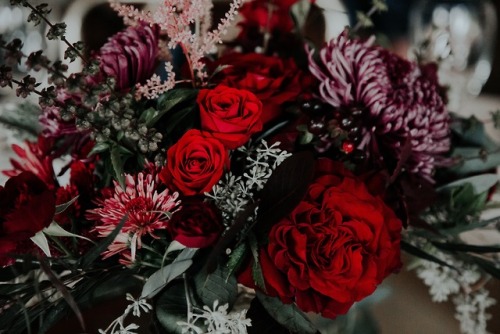
aconcoctionofobsessions
Dev | 22 | Indian
100 posts
Latest Posts by aconcoctionofobsessions
![Sunrise In The Forest. The Netherlands [OC][4487x3366] - Author: Fujiforest On Reddit](https://64.media.tumblr.com/d7bdb15abec86734d86eaeecdd5a053e/cf5c911d984c4971-44/s500x750/e4f68c49eeeaba245117a1ed656d008544bbfd8b.jpg)
Sunrise in the forest. The Netherlands [OC][4487x3366] - Author: fujiforest on Reddit
"Remember how long you've been putting this off, how many extensions the gods gave you, and you didn't use them. At some point you have to recognize what world it is that you belong to; what power rules it and from what source you spring; that there is a limit to the time assigned you, and if you don't use it to free yourself it will be gone and will never return."
Marcus Aurelius - Meditations, Book 2, 4.

~ from pinterest
Otters will forever be the most dramatic creatures on the planet🦦


jalilnajafov on ig
yeh rishtaa kya kehlataa hain
@allegoriesinmediasres asked for: Rama/Sita, travel!AU, friends to lovers, “you confuse me”
as usual, this is completely unedited and thus is probably chock full of grammar errors, bad characterization, and terrible pacing. but! it was fun to write on my end so as always if u want me to rewrite it I’d be glad to lmaoo. it’s super super super cheesy at the end…like the whole third bit is just super cliche but w/e i love cliche romance its all good lol. anyways, i hope you like it at least a little!! thank you so much for the prompt <3 <3 <3
if you’d like to send me an au prompt from this list, please do!!
(title is from a lovely ar rahman song from the movie meenaxi, and also apparently a hindi soap, meaning “what is this relationship called?” )
—
It’s been two weeks since the Raghuvanshi Group put out a notice that nearly brought the Indian manufacturing industry to its knees: Ramachandra, eldest son of Dasaratha Raghuvanshi and anointed heir since his very first breath, has been stripped of his VP positions within the company, his stock options, even his entrance card. The gossip blogs report that Ramachandra has lost access to the family accounts and family property, have posted pictures of the young man once posed to be the next titan of Indian Industry at a local branch of the Bank of India, handing over what is rumoured to be his great-grandfather’s watch as a starting sum so that he can get his own personal account.
Keep reading
varshadhara
one.
Sita has been married a year when there is news of a drought, cloudless skies that refuse to darken and dust that does not become soil. 20 villages chose a single representative to beg for aid from the Emperor himself, and Sita’s husband is drawn when he finally enters their bedroom that night.
“They are dying,” he says quietly, a confession that even later Sita is never sure he meant for her to hear. His eyes close as he begins to remove the ornaments that mark him the eldest, the favorite son, heir to all his father has conquered. Sita, seated on the bed, watches as her husband looks down at the ruby necklace whose clasp he has just undone and calculates how many meals he could buy with what lies so easily in his palms.
“Years,” she confirms, hands playing with the edge of her cotton upper cloth for want of something to do. Her voice startles them both, somehow too loud and too soft for the strange hush that has fallen on the palace so many hours after sunset. “But only because the jewelry you wear is more precious in this city for having been yours.”
He looks up, curiosity a glint in his eye and hands at the heavy earrings the Emperor insists on for court. He seems glad to see her. “Would it help?”
“Yes,” she says, ignoring the way her heart clenches to hear the hope in his voice, “for now. But what about in a year, should the drought continue?”
Her husband glances at the chest which keeps his gold, the fruit of a generation’s worth of tribute from kingdoms that span the earth.
“What a tragedy,” he drawls, fingers slowly teasing out the crown from the wonderful tangles of his hair, “to lose all these heavy jewels in pursuit of my duty as king.”
Sita startles into laughter and reaches out to take her husband’s burden, ignoring the surprise that flickers briefly across his features. He is always so surprised and then so grateful for what to Sita are the smallest morsels of tolerance. She does not think about why this might upset her. “And as my Lord’s faithful wife,” she says cheerfully in response, “I suppose it would be my duty to donate my ornaments as well.”
Both of them linger on Sita’s wrists, the ones she keeps nearly bare save the one golden bangle around each that at least proves her a wife. They smile: tragic indeed.
“My father has proclaimed that the drought stricken will not pay tribute,” Sita hears hours later, low in the moments before she finally closes her eyes, “but there must be something more we can do to help.”
She could live like this, she thinks, at the moment she slips over the edge between the worlds of life and dreams. Sita is content. This could be enough.
----
two.
By now all of Ayodhya must know that Janaki, foundling daughter of the Videhan king, was not expected to marry -- the year that she has spent in the blessed state so far has been tumultuous, to say the least. She grew up a goddess, but more than that she grew up sheltered from palace politics and finds herself embroiled in more than one controversy due to her own ineptitude.
Her sisters, each of them younger than Sita, were married to her husband’s three brothers before they became women true and so are kept as maidens in the palaces of their individual mother in laws: far from their eldest sister who lives, as is traditional, in the rooms of her husband.
What would they say, Sita wonders, if they knew their sister to be equally virginal only weeks before the first anniversary of her wedding?
Sita sets the ceremonial platter on top of a stool and kneels, gently picking up the woolen blanket covering her husband as he sleeps on the floor. The difference in temperature, they have both realized, is usually enough for him to wake and so it is today when his eyes open. Together they fold not only the blanket that covered him but the two others that make what serves as his mattress on the ground, one of her husband’s many concessions to his ungrateful, accidental wife.
“I was never supposed to be married,” she had whispered the night of their consummation, tears streaming down her face and tone as possibly close to a shriek while knowing that servants listened at the door. “I know nothing of how to manage a royal household, much less satisfy a husband!”
The black rimming her eyes must have mixed with her tears, leaving Sita a fright. The combined talents of Ayodhya’s finest ladies-in-waiting ruined by the anxieties of a girl utterly unsuited to serve as their canvas. Sita’s husband, a man who wielded enough power at 16 to force each of Sita’s baying, blood-lusting suitors -- some of them thrice her husband’s age -- to their knees in supplication, had barely walked into the room when confronted with the sight.
“I did not need the protection of a husband,” Sita had said then, back turned. “I would have died before any of those lechers disguised as failed suitors tried to touch me.” She choked back a sob. “It would have been better for us all if I had.” Years later her husband confesses that sometimes he still hears her like this in the moments before he falls asleep, even when they have spent more years than not tangled as one in bed. Sita never tells him how close it all was in the end, how tightly she was gripping the knife when someone heard that a young anchorite had not only lifted, but broken the Great God’s bow. But on her wedding night, when Sita opened her eyes it was to the sight of her husband, his own blade drawn. She flinched, but he only raised his own palm and ran the edge against skin to draw blood.
“A woman,” he said in answer to her unvoiced question, “is supposed to bleed on her first night. The washerwoman will be paid handsomely for her knowledge in the morning.”
Sita flushed, shoulders straightening of their own accord at the implication.
“And as a virgin bride myself, I will bleed as any other” she said, hands fisted at her side in brief, overwhelming rage. “My reputation does not need you to shed blood on my behalf.”
Her husband had only nodded, moving towards the side of the bed opposite to where Sita sat in order to smear his palm once, twice, thrice until he seemed satisfied with his handiwork.
A million questions ran through Sita’s mind. “I hope your sleep is restful,” was all her husband said in response, grabbing a blanket from the foot of what was to be their marital bed and arranging himself on the floor.
Nearly a year since, Sita’s knowledge as to the running of households has not increased, nor, she suspects, has her knowledge regarding the satisfaction of her husband. He keeps long hours, spending as much time away from his wife as possible. The people of Ayodhya, used to the years that might have passed between visits from their woman-drunk sovereign, are enthralled by the near constant access to their Crown Prince, and this during the years when it is acceptable, nay even appropriate to be devoted to naught but one’s own pleasure.
The women of the palace, caught between their desire to honor their collective son and their need to denigrate his strange, uncouth wife, stay silent.
----
three.
“In Mithila,” Sita’s husband begins, breaking their easy silence that has fallen over this morning meal, “what would you do in times of drought?”
Sita startles, the palm frond she was using to keep away insects as her husband ate, slipping to the ground. Though they can now speak of many things, they have never spoken of Mithila -- it is encouraged for new brides to sink themselves fully into the environs of their new, forever home. In this, at least, she is like every wife before her: the ways of her past can have no place in her present. Every day she must attempt to forget who she once was.
“I am only a girl,” Sita answers carefully, eyes lowered as she was told women do. “Such a question may be better answered by my Father, or one of the preceptors versed in these matters.”
There is a silence, but Sita, unable to lift her eyes to her husband’s face, cannot tell if he has accepted her falsehood. The Raghuvanshis, she has been told time and time again, are a line of honor. They do not lie.
“Did you think--” she hears, and then a sigh. “I know who you are, my lady. Are we not friends, at the very least?”
Sita clenches her jaw, picking up the palm fronds once more. She is no longer afraid of her husband, at least not as she was at first. But he cannot want the answers he seeks, not truly. “I am a princess of Ayodhya,” she says, as she has to herself every morning since she woke up next to her husband’s blood on the bed and his body on their floor. “I am your wife, sanctified by the Lord’s Bow and the sacrament of the Holy Fire.”
“Yes,” her husband agrees. Sita cannot help but note that his tone is gentle. “And in Videha, you are considered a Goddess too.”
He says it so easily, as if Sita does not live balanced on the sword-edge between damned and divine. For a moment, she lets herself imagine what it would be like to be known.
There is a story known in Videha, of a drought so ferocious that a King long without child was forced to seed his own lands with the merit of his good deeds. Of the four days of labor that resulted in a baby girl, delivered from the womb of the Eternal Mother Earth. A child covered in an afterbirth of soil where there had only ever been useless dirt.
And yet this too is known: children are the only dead who are buried, their bodies believed too beloved to be consecrated to the fire and burned beyond reckoning. Instead they are covered in wool and laid to rest in the lap of Mother Earth alongside a plea for Death to be gentle.
Sometimes these children are wanted. Many times, the bodies buried are the ones who are not.
This is all that is known: when the King knelt to deliver the child, what had previously been blue sky broke into the first of that year’s monsoon, nearly a decade since the last.
Foundlings left to die do not wear the garb of royalty. Goddesses do not wed.
What would you call me, Crown Prince?
“I am a princess of Ayodhya,” she says, the words suddenly heavy, like stones in her mouth. Her silence protects her sisters from the taint of Sita’s own uncertainty, and Ayodhya has no need for Gods not its own. She waves away an insect that attempts to rest atop her husband’s left ear and resigns herself to her fate: “I am your wedded wife.”
“They are dying,” he says softly, but he speaks to himself. Sita thinks of the easy way they can speak now sometimes; at nights before they retire, or over a morning meal. Her husband is right -- they are friends, if nothing else, and she owes him more than this. Viciously Sita tamps down on the guilt she feels roiling her stomach, rebelling against a stance that suddenly feels like betrayal.
----
Four.
“It is strange,” Mother Kaushalya remarks, as always, “that you were never taught the ways of Royal Women. Is this how girls are raised in Videha?”
Mother Kaushalya, who has only known the Kosala for which she is named, has latched onto the strangeness of Sita’s far-off homeland as a possible explanation for the ways in which Sita grates mountain-rough against the silk of the Imperial Palace. It is useless of course, since a slight against Videha must inherently touch Sita’s sisters, who in the last year have already developed a reputation for grace, gentility, and an overflowing well of kindness towards all blessed with their presence.
Mother Kaushalya, according to the servant-slaves Sita eavesdrops on, has been heard quarreling with Mother Sumitra, begging for “at least one of your darling girls, my Lady, for you know that it can only be selfishness to keep them both when your elder sister has none!”
Sita, tugging awkwardly at the overwrought necklaces she must wear when in Mother Kaushalya’s presence, can only agree. She, more than anyone, knows what she lacks. There have been rumors recently that all three of Dasharatha’s Chief Queens have made a petition to the Emperor to find a new princess worthy of the Crown Prince’s hand.
Sita can only hope that when the time comes, her husband will allow her access to the Imperial Library, or at least will deem it proper to have one wife devoted to the worship of the Gods: philosophy and piety are so easily confused, after all. The best life she can now demand is one where she recedes into the background of the Imperial Palace, unneeded and unknown by all. Never will Sita oversee the workings of a kingdom in the manner she was raised, nor will she sit atop an altar and listen to those petitioners who make pilgrimage to weep at her feet.
Some days, Sita does not even know if she is a woman at all, if these mothers and wives are capable of knowing and carrying the grief of a nation inside their fragile bodies. Every night she dreams of the drought ravaging the villages near the outskirts of Kosala, of how once a year Sita was carried by 50 men to the fields of Videha so that she might press her feet into the soil that made her womb and call forth the rains that heralded her birth.
But then she too dreams of this: a mother weeping, swollen with child like other mothers who have knelt in front of Sita. A mother who delivers a daughter in the ordinary way and buries her alive.
“Goddesses,” the Sage Parashurama had said the year after Sita was installed in the palace of Mithila, “are not meant for marriage. Videha is fortunate that after the reign of Janaka it will be guided by the light of the Divine.”
He paused then, as they all do. “And if the Lady were not a goddess, well --”
They never finish the sentence. The threat is implied.
Sita cannot be meant for love, not in the way of women who are meant for marriage. How can she, when she was meant to sit atop a dais as the physical embodiment of a force of nature, just as easily as inside the hearts of believers? How can she, when she lives her life in the fear that she will be caught out and banished, back into the grave she was meant to die in?
Women are meant for friendship. Women are meant for love.
“My apologies Mother Kaushalya,” Sita says, shaking her head and trying to convince herself that she does not rage against the fate that stretches fallow before her, “I was not raised to be much of a girl at all.”
The real trouble, Sita thinks later, is that despite everything she has somehow found herself liking her husband anyway.
---
five.
“My Lady,” a servant twitters three weeks after the Emperor promises debt relief to the drought-stricken. “My Lady, your Lord husband has need of you!”
Sita looks up from the flowers she is carelessly attempting to string together in a garland, perhaps to festoon a doorway, perhaps to drape around one of the many idols of Surya, the progenitor of her husband’s race. They have not spoken in the week since he asked her about Videha and she refused to answer. “He does?”
“He does,” the servant responds with some relish, ready Sita is sure to reap the rewards of being the bearer of such premium gossip the moment Sita’s back is turned. Sita’s husband has never before indicated such a preference for her company. “He asked that I bring you to him, and not in the garb of royalty.”
“And you are sure that this is my husband?” It is not altogether seemly for Sita to be expressing such doubt that her husband might be asking for her, especially when such a request -- even to appear in plainclothes -- is not unusual for those young and in love, seeking respite from the rhythms of the palace by traveling outside its gates. But really, her husband?
The servant, a girl perhaps only a few years older than Sita’s 16, only raises an eyebrow and widens her grin. “Should I call for one of your maids to help you dress?”
“No,” Sita responds absently, lost in the contemplation of what game her husband could possibly be playing. “Did he say if he had any preference as to what I wear?”
“He did not, my Lady, but if I may I think you had better choose something blue if you have it. The color sets nicely against your skin. Silver jewelry instead of gold, if you have that too. ”
Sita does, buried at the bottom of a trunk of clothes she had carried with her from home. But before that --
“Here,” Sita undoes the clasp of the pearl necklace sent to her by some princeling attempting to curry favor with the crown. There is no true harm in people knowing she has left the palace in her husband’s company, but she is off-center enough to want this a secret as long as she can buy it so. “For your silence, until we return.”
In the time it takes Sita to strip out of silk and re-knot her old lower cloth of coarse blue cotton she has thought of a hundred different potential scenarios. Had she been alone, she might have had to slouch out of her own rooms with her head down so that she might prevent recognition -- in the company of a servant, Sita is passed over as one as well and strolls quite comfortably into the sunshine, following a path she has never taken until they find her husband leaning against the wall of one of the palace’s more minor stables.
“My lady,” he says, seeming to shake himself out of some sort of stupor and leveraging himself fully upright. “Antara,” he says then, turning to face the servant he had charged with fetching Sita, “you have my gratitude.” He leans down to pick up something wrapped in cloth before walking to Antara with a winning smile while pressing the package into her arms.
Sita knows something of her husband, but not like this. She is charmed.
“I came across the mangoes your sister likes when I was making my way back from one of the border kingdoms,” her husband says to Antara. “Tell her that I look forward to hearing more about her adventures when she is feeling well enough to take visitors.”
Antara’s eyes gleam and grow misty. “Oh,” she says, lips trembling as she folds her hands around the parcel and takes her leave, “and we have only just gotten her head to shrink back to its usual size after the last time!”
Alone at last, Sita’s husband’s earlier flash of ease vanish into the ether. Sita tries not to take offense at being more a stranger to him than the woman he sent to fetch his wife. “My lady,” he says again, but cannot seem to say anything more. Sita, feeling the awkwardness of the last week’s silence and her own slight guilt besides, takes pity.
“The girl?”
Sita is rewarded with a smile of her own, small but sincere. “Bedridden, but wonderfully vivacious still. There are bouts of illness where she is worse off than usual, but she believes me nothing more than a particular playmate and I try to see her when I can. The parcel has medicine a far-off physician swore had done a similar patient some good, but Antara would never accept unless I passed it to her like this.”
Sita blinks. “But you are her sovereign!”
Her husband shrugs. “I am her sister’s friend, and I find that everyone is entitled to some amount of pride. It is difficult to accept that you cannot help the one you love best alone.”
She nods, satisfied as she has been in the past with the knowledge that at least she is not married to a stupid man, And, she supposes, not a cruel one either. “How old is the girl?”
His smile widens slightly in apparent reminiscence. “She will be seven in two months' time.”
“Does she have a doll?”
“One,” Sita’s husband says slowly, brow slightly furrowed, “but bedraggled.”
Sita may not know how to comport herself as wife nor princess, but once she was a Goddess who heard the entreaties of those who cared for their beloved ill. Still, she remains a sister. This, Sita knows how to do. “If you approve, I will make her a new one that you can take with you. I used to make dolls for my sisters out of dried grass and cloth when we were children.”
For a moment, her husband looks stunned before he manages to school his features into something like equanimity once more. Still, he slips and there is something helpless about the way he is suddenly looking at her. “You are kind,” he says, but low in a tone that makes it clear that he is not truly speaking to Sita so much as about her to himself. “I am always glad for that.”
Sita blushes, unsure about how to respond to a compliment not exactly meant for her ears. It is not something she ever expected to hear from anyone in Ayodhya, much less the husband she condemns to spend his days wandering the countryside and his nights at rest alone on his own stone floor. “Why did you call me?” she decides to ask instead.
Again, her husband shakes his head as if rising from a reverie. His usual self-confidence suddenly melts into trepidation. What could he possibly want that discomfits him so?
“At the Kosalan border,” he says slowly, eyes focused on some point behind Sita’s shoulders, “there are a few villages that, at some point in the last few years, welcomed some families from afar.”
There is something about the way he speaks that begins to knot Sita’s stomach. She has the beginnings of an inkling, but nothing so concrete that she can speak it aloud. She nods for him to continue.
“Neighbors share stories in times of plenty as well as times of scarcity. These last few months there have been stories about former droughts, experienced by foreign kingdoms.”
Ah. Of course.
“This is not Videha,” Sita says, but she speaks almost as if she is in a dream. She cannot deny her divinity, not without inviting further scrutiny of her orphanhood. But neither has she ever truly believed that it is her feet that coaxed the rains to Mithila. Her father sowed the fields with the merit of his good deeds. Her father found a babe in the trough. Coincidence does not imply correlation.
What would happen if the stories were wrong? If Sita walked the lands but the sky remained a bright, barren blue? In some faint corner of her heart, she feels resentment towards her husband for having made her think of this at all.
“Yes,” her husband agrees, “I told them so. But they insist I bring you to meet them if only to speak as their princess.” He winces slightly, eyes shifting desolate to the dirt. “Hope sometimes means the difference between death or life in these instances, and at this moment I have nothing else to offer.”
Helpless, Sita thinks again. Her husband, Crown Prince of Dasaratha’s empire that extends further and exacts more in tribute than any before, stands helpless before his wife. They are friends, he had said, and even before that, he is the one who has always been kind. She opens her mouth to say something, anything, but no words find themselves on the tip of her tongue.
Her husband, eyes still averted, nods as if he has understood. “It was foolish to ask, I know, and perhaps you even think me cruel. You do not speak of who you were in Videha, and I should not ask this of you as my wife.” His jaw sets. “I will take you back to the palace.”
What would happen if the stories were true? If, as in her dreams, Sita walked the lands here in Kosala and the skies still split?
“How will we go?” she asks quietly, unable to force her voice firm. The words leave her mouth unbidden, but she knows they are right nonetheless. “How long will it take?”
She can almost hear her husband’s neck snap as his eyes rise from their study of the ground to gaze at her with all the intensity of the vicious sun. If before he was stunned, now he can only be described as pole-axed. His face is suddenly host to so many overwrought emotions at once that it is rendered as illegible as the times when he forces it blank. She has never seen him so, but that is not unusual. She had not seen him even wearing the smile he gave Antara.
This, she wonders, if anyone anywhere has witnessed ever before. She wonders, even as in her heart she knows the truth: they haven’t. None but Sita.
“Will you really come?” His voice is almost plaintive, like a child asking something he already knows he cannot have. But what does the most powerful man in the world know of want?
“I will,” Sita says, head spinning with a thousand questions, a thousand fears, a thousand hopes. She bites her lip, suddenly overwhelmed by her own uncertainty. “I cannot promise --” again, she loses her voice before she can finish the sentence that would throw her status into such uncertainty.
“I know,” her husband says, answering her unasked question. “I always knew. It would not matter to me either way.” He too seems to break off, struggling to find the proper words. He takes a step forward, and then another, and then one more until he stands in front of Sita, close enough that if he reached out he could clutch at her wrists. “Janaki,” he says, voice dripping with an honest earnesty that suddenly reminds Sita that if she feels herself a girl in Ayodhya then her husband too is a young boy, aged artificially by the weight he is always carrying on his shoulders.
“Janaki,” her husband says again, and Sita takes a breath. He is very handsome up close this friend of hers, the man who is her husband. “You will always be safe with me.” He smiles slightly, and Sita feels the corners of her own lips curling in sympathetic response. “As you say, you are now my wedded wife. There is nothing anyone could say about you that will change that. You can be more, but from now on you will never be less.”
For years Sita was old as well. More than anything else, she was lonely. She is lonely still.
What would you call me, Crown Prince?
My wife.
“I will try,” she vows, refusing to think about what it will do to the villagers for whom the drought continues after she walks the distance of their land. For once, she knows what will happen: she will remain her husband’s wife. In many ways, this is more the moment of her marriage than the one in which he tied the sacred thread around her neck than the one in which he broke the bow of the Great God.
“I will,” she says again, and Sita is unsure if she is promising to be wife, princess, or Goddess. All three, perhaps. “For them,” she swallows and throws all caution to the wind. “For you, I promise I will at least try.”
---
+1
Sita walks for hours, hair falling out of the twist she had pulled it into after dismounting from the saddle she had shared with her husband traveling by horseback to the place that still believed there lived a goddess that could quench dry land.
She walks and walks, walks and walks and walks until her feet begin to crack and then bleed after such long exposure to the harshness of dead earth. Then, she walks some more. Thirst left her an hour ago, but now she struggles against exhaustion. Every step threatens to pull her down into the dust, and she knows, knew, that this would happen. She knew that she would prove their faith false, and leave them worse for having met her. She knew, and yet --
She had hoped, still.
There are no living goddesses who walk the land like Sita to call forth the rain. It is a ritual that has its roots in her father Janaka’s sacrifice, seeding the earth with the merit of his good deeds. Once, she had asked him what he felt when he had been plowing alone in the moments before he manifested a miracle.
“I suppose I should tell you that I prayed,” he had said thoughtfully, hand coming up to stroke absently at his beard, “but I did not. My people were suffering, and there is nothing even an intelligent man can do to mitigate the effects of a decade of drought. I was supposed to be thinking of all the good I had done, so as to imbue the ground with that goodness. But more than anything, every moment I was there I wanted it to rain -- more than anything I had ever wanted before. I felt like I would have done anything then, given anything, if only it would rain. By the end, I knew it would. It had to.”
In Videha, Sita had walked as ritual. She had lived in times of plenty.
In Kosala, there is a drought. She has seen with her own eyes the shrunken bodies of villagers who have no food. Whose voices are raspy with thirst. Together they had collected all the water they had left and had Sita sit, cross-legged before them as they washed away the dust of the road. Sita’s husband has promised that she will be his wife even if she proves a woman after all, but suddenly she knows why the rain fell. Her father too had known; in his own way, he had even tried to tell her.
In Kosala, Sita wants. She is a woman, and in this moment she wants as she never has before. She wants it to rain, more than anyone ever has wanted anything anywhere. More even than her father must have wanted because she wants not only for herself and her people but for her husband as well. Perhaps for him most of all, whom she has seen wrack his mind for weeks. Who has defied what convention or good sense would tell him and instead placed his faith in his wild wife, bringing her to the outskirts of his kingdom in hope of a miracle. Far from the palace, Sita knows herself. She knows what she wants. She knows now, with blinding certainty, what will be.
She wants to be loved, and she wants to love in turn. She wants it to rain, and so it will.
She walks until her body fails, certain in her knowledge that the rain will come. It has to. She trips, and suddenly she hears the gasps of the crowd that has kept vigil at the sides as they did in the time of her father before her. She trips, she falls, and just as she loses consciousness she hears the impossible roll of thunder on a cloudless day.
Sita hits the ground, and it begins to rain in Kosala.
---
coda. (2, 3, 4)
It is late when Sita wakes, eyes opening to the ceiling of a small hut as the raindrops patter against the roof. Outside she can hear shouts of glee, the beat of drums, the exultant songs of villagers who know that they can soothe their hoarse throats with water.
“Was it always like that?” Sita looks down to the foot of her bed where her husband kneels, hands gently rubbing ointment into her wounds before wrapping them with strips of his upper cloth. She hums in question, uncertain of what he means. “When you would walk in Videha,” her husband clarifies, eyes never leaving his self-appointed task, “was it like it was today?”
She could say yes, and imply that this is what goddesses do. Raghuvanshis do not lie. “No,” she says, and marvels at what a struggle it is to even speak. “Never.”
He nods, as if this was the only answer he expected. “Then it really was you,” he says softly, and suddenly Sita notices his hands are shaking as he winds the last of the cloth around her left foot. “You walked, and the gods answered your call.”
“Yes,” Sita says in a whisper. It is a thought too large to bear. He must have questions, she knows, and she owes her husband an explanation. She wants to tell him everything she remembers, everything she now understands, but in this moment there is nothing she can bring herself to say.
Finally, he looks away from her feet, shifting so that it is easier for Sita to look and see his red eyes.
“You cried,” Sita says inanely, stupid again but now in shock.
Her husband laughs, the sound just on the verge of being a sob. “It rained.”
He looks away.
“Before I found your pulse, I thought you had died.”
---
They leave in the morning once more on horseback, Sita clutching her husband’s waist and content to expose her aching, bandaged feet to the elements having long lost her shoes. The villagers offer breakfast, but Sita and her husband communicate wordlessly like she has seen other married couples do, and say together that they must respectfully decline. It will take another cycle for the crops to truly flourish, and there is more food than anyone can eat at home.
For a moment, Sita is jarred at the realization that Ayodhya is what she means when she thinks now of “home.” Mithila, of course, is home always -- but it is different now. Sita’s father called down the rain in Videha, but it was Sita alone who split the sky for her home last night.
After about an hour her husband brings the horse to a halt and jumps down, walking until they reach a lush orchard. Sita swings her right leg around and falls into his arms. For a moment she feels him lower her before he remembers that she cannot walk and shifts his grip, left arm grasping under her knees as Sita wraps her arms around his neck.
“You like jamun fruits, no? You keep them in our bedroom sometimes.”
Yes, Sita does. “Do you?”
Her husband shrugs. “I like these jamun fruits.”
“And where are we?”
“The crown plants orchards at places along the main roads so that travelers might find some respite.” He smiles, looking up at one of the trees. “This is the one with the best jamun fruits in Kosala. And this,” he lowers Sita to the ground underneath the tree and she lets go obligingly, “is the best tree of the orchard.”
It is a romantic claim to make, that there is a single tree that produces the best fruit in the land, but Sita’s husband does not say it as one might when repeating a fancy. Intrigued despite herself, she asks: “How do you know?”
He palms the bark, fingers searching for something that he finds in a particular divot. “A few years ago a squadron of warriors tested the fruit of every tree. This was the one they liked best.”
Sita is skeptical. “And you believe them?”
“Well,” her husband amends, that same mischief he had shown Antara in his eyes, “this is certainly the one I liked best, and the rest agreed as well. It might not be to your taste, given that you are a woman of refined taste in this sphere and I merely a man who prefers mangos.”
“We shall see,” Sita laughs, bedraggled and thirsty and tired. Still, she feels like she has never laughed like this before. In her past she has certainly felt joy and found laughter, but in her happiness now she floats. She had always felt so heavy before. “Let me have my breakfast, and I will be the judge of that.”
Her husband is graceful in victory -- it is not perfectly the season, but Sita swears she has never tasted so sweet a fruit.
---
“Her feet are bandaged,” Kaikeyi observes when the cacophony that accompanies their return to the palace dies down to a dull roar. It is an easy thing to notice when Sita is being carried in her husband’s arms. Kaikeyi was always the quickest of Dasaratha’s queens and proves herself to be the one best informed when her beautiful face twists in withering disgust. “You cannot possibly think that your wife ended the drought by walking.”
Sita cannot tell if the emphasis is on the words “your wife” or “walking.” Both, she thinks, offend the very marrow of an Ayodhyan sensibility that has spent half a year shoving gold at pandits to fund a sacrifice that will finally please Indra.
This is what Sita, married into a family that does not lie, plans to say: “We are glad to see the rain.”
This is what her husband, whose words at 18 already carry more weight in this family than those of his father, says instead: “She did. I saw it with my own eyes.”










{Mass media and social networks} urge us to admire all the innovations rushing toward us like surfers on the crest of a powerful wave. But historians and anthropologists remind us that in the water's depths, changes are gradual. Víctor Lapuente Giné has written that modern society suffers from a clearly future-oriented bias. When we compare something old and something new — like a book and an iPad or a nun sitting next to a texting teenager on a train — we believe that the new thing has more of a future, when in fact the reverse is true. The longer an object or custom has been with us, the greater its staying power. On average, the newest things die out first. It's more likely that nuns and books will exist in the twenty-second century than WhatsApp and tablet computers. There will be tables and chairs in the future, but maybe not plasma screens or cell phones. We'll be celebrating the winter solstice long after we stop using tanning beds. An invention as ancient as money has a strong chance of outlasting 3D cinema, drones, and electric cars. Many trends that seem irrevocable — from rampant consumerism to social networks — will subside. And old traditions that have been with us since time immemorial — from music to spiritual exploration — will never disappear. In fact, when we visit the world's most socioeconomically advanced countries, what's surprising is their fondness for archaisms — from monarchy, protocol, and social rituals to neoclassical architecture and outdated streetcars.
— Irene Vallejo, Papyrus: The Invention of Books in the Ancient World


![Cascate Di Fanes, Italy [OC] [3750x5000] - Author: Tegucigalpa1337 On Reddit](https://64.media.tumblr.com/bc07d41b7c2bd0e7e7fce1a194e8c76d/cf1b58a74e0c93cc-65/s500x750/8a56fcbad3b174c6bd57a9b5426fe0744c146e7e.jpg)
Cascate di Fanes, Italy [OC] [3750x5000] - Author: tegucigalpa1337 on reddit

COVID may have prevented me from shooting new material for the last 4 months, but at least it forces me to finish up all those incomplete projects! Here’s one of my favorites from back in October. Fall Foliage in Lake Placid, NY. [1365x2048][OC] - Author: Chaitography on reddit
Words cannot describe my love for this movie. And this scene.




- Milady, you may have anything you can carry. - May I have your word on that, sir? (requested by waywardhufflepuff)

Keep reading


Annabeth Chase from the Percy Jackson and the olympians series
being able to control armies can make people weak, or hungry, but a true queen can control her army and still call them friends










































